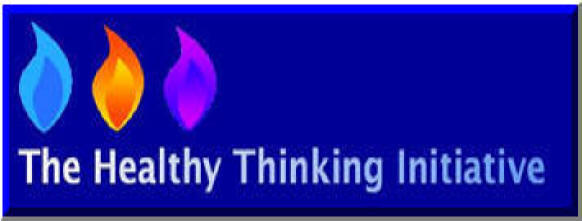The Healthy Thinking
Initiative Program
The Healthy Thinking Initiative Program is a twelve week interactive
training program for the prevention of depression and anxiety and
the development of emotional wellness. The skills that are
learned a practiced within this program are drawn from well
researched evidence based practice that have been shown to reduce
depression and anxiety in adult populations.
We also offer programs in Mindfulness, Optimism, and Resilience as
optional training opportunities. Ask about setting up a workshop or
a lunch 'n learn program to introduce your company to healthy
thinking skills.
Information does not equal implementation!
We are committed to bringing you programs that will add value
to your workplace. While we will offer informational programs, at
your request, these programs do not lead to substantial change. It
takes time and practice to build the skills associated with healthy
thinking. Let us help you to find the programming that will benefit
your organization.
Syllabus:
The Healthy Thinking Initiative Program
Week One: Automatic Pilot
Objective:
Participants will learn about the ways that individuals react to
life events without conscious choice. These automatic reactions
often result in unhealthy habits of the mind.
Week Two:
Breaking Down the Barriers
Objective: Participants will
learn about the ways that mental processes interfere with
intentional actions. Thoughts, poor self-image, and past experience
distract from the intention to make real and sustainable changes.
Week Three: Habits of the Mind
Objective: Participants will
learn about the ways explanatory styles influence results. Personal,
pervasive and permanent explanations for success and failure have an
impact on how often a person will succeed or fail. Strategies for
identifying and selecting an explanatory style will be introduced.
Week Four: Allowing/Letting Be
Objective: Participants will
begin to identify what is in their control and what is not. The
nature of thought and emotion are for each of them to arise without
the ability to control it. Thoughts are not facts. Emotions distort
experience. Control is found in the ability to make a choice about
whether to infuse thoughts and emotions with significance or to let
them pass through the experience without giving them importance.
Week Five: Building Resilience
Objective:
Participants will learn to recognize the choices they have
even when they are facing difficult circumstances.
Circumstances do not define who you are; deciding how you
choose to be in those circumstances is what makes you who you are.
Week Six: Building On Strenths
Objective: Participants will learn to act from their personal
strengths rather than focus on avoiding their weaknesses. The
willingness to shift from needing perfection to being able to accept
that everyone has weaknesses but everyone also has strengths is a
component of developing real self-acceptance. Putting strengths of
individuals together in a team is a powerful way that humans
collaborate. It is more effective that trying to eliminate the
weaknesses of those individuals. The secret of an effective team is
for everyone to bring their greatest strengths to the effort and to
have a collaborative effort where the weakness of one is balanced by
the strength of another.
Week Seven: Developing Compassion
Objective: Participants will
learn the ways that empathy builds supportive relationships and is a
key to increased happiness. Compassion building exercises will be
introduced.
Week Eight: Communication
Objective: Participants will
learn that intense emotions can quickly “hijack” attempts to
communicate. In very emotional situations the brain does not think,
but rather moves quickly into a defensive mode that interferes with
communication. It is necessary to develop tools to quiet the
emotions as a successful step toward solving problems.
Week Nine: Flourishing
Objective: To introduce
participants to the realization that the absence of illness does not
imply the existence of health. Participants will learn to go beyond
lowering risk for disease or disorder and identify key factors in
living a happier life.
Week Ten: Healthy Thinking and the Seven
Dimensions of Wellness
Objective: Participants will
learn how to apply what has been learned about emotional health to
the other dimensions of wellness.
Week Eleven: Personal Wellness Planning
Objective: Participants will
prepare for using these tools over the long term. Each participant
will construct an individualized plan to continue the practice of
healthy thinking skills and to anticipate problems in the future.
Week Twelve: New Beginnings...
Objective: Review the learning during the previous 3 months and
obtain an evaluation of the course.
Contact us for
more details at
healthythinking@preventingdepression.com
or call at (262) 544-6486.

